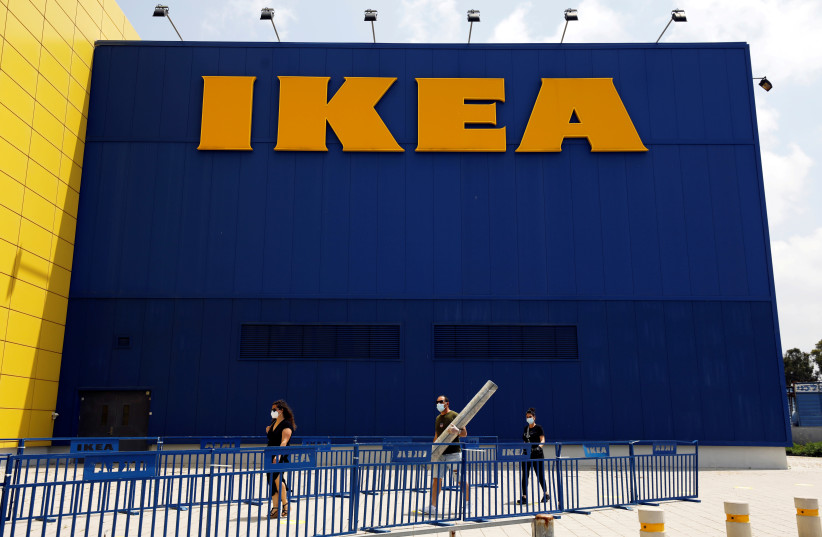Modi’in-based fintech firm Jifiti has received $22.5 million from Ingka Investments, the investment arm of global flat-pack furniture giant Ikea, Jifiti co-founder and CMO Shaul Weisband said Tuesday.
“The ‘buy now, pay later’ [BNPL] trend has blown up in the fintech world during the past few years,” he said. “It allows you to buy something and pay over time in monthly installments instead of paying everything up front, similar to the system of tashlumim that we have in Israel. We’ve developed a solution that helps banks compete with fintech companies and offer better rates.”
This is Ikea’s first investment in an Israeli company, and it is a huge honor that underscores the added value Jifiti brings to the industry as a whole, he added.
BNPL is a huge shake-up for the entire retail sector, and a number of fintech start-ups have essentially muscled the traditional lenders out of the picture, Weisband said.
“In the old days, which were just a few years ago, if you wanted to buy, say, a refrigerator, you might go to the bank and apply for a loan first,” he said. “Then, only after it was approved, you’d get the money in your account, and you could go to the store to make the purchase.”
“Over the past few years, that whole concept of consumer loans has moved to the point of sale,” he added. “Now, at the same time as you’re deciding whether to buy the product online, you are offered to finance the purchase. Large fintech companies like Klarna have the algorithms to quickly calculate the best loans to offer as an alternative payment mechanism in the checkout process.”
However, this means banks, which have traditionally provided these loans, are now watching fintech companies eat their lunch, Weisband said.
“These kinds of loans have been the bread and butter of banks for hundreds of years,” he said. “But now they are losing out because they lack the technology to deploy on e-commerce sites, and that’s where we come in.”
Jifiti’s technology offers banks the ability to connect to an online retailer’s back end and make loans themselves, with end-to-end tools to deploy and scale quickly.
“We saw this lending gap a few years ago,” Weisband said. “The banks are where the future is for BNPL. They can usually offer more competitive rates than the banks and are often more responsible lenders because they are regulated, which the fintech companies are not.
“Companies are now financing $200 sneakers online, and there is a risk that they will see large default rates. Our company offers a ‘white-labeled’ tech platform, providing the banks with the technical capabilities they are missing.”
Jifiti has gained the attention of a number of banks and merchants, but the strategic investment by Ikea represents a big leap forward for the company.
Ikea’s local banking partners in Spain, France, Portugal and Belgium have been offering financing in their stores via the Jifiti platform since 2019, and they are now rolling out in other countries. Ultimately, Jifiti will offer services to all of Ikea’s 706 million annual in-store customers and 3.6 billion e-commerce visitors worldwide.
The investment is one of Ikea’s first forays into the fintech sector, following its acquisition of 49% of Sweden’s Ikano Bank. These investments are expected as part of the company’s efforts to make its products more affordable and accessible to customers.
Jifiti started operating as a gifting solutions provider in 2012, and it still offers that service, although BNPL is now its main focus. The company is based in Modi’in, where most of its 50 employees work. It also has a small team in the US.
The company is always hiring, Weisband said.
“It’s amazing to me that we can be sitting in this small city of Modi’in bringing value to the largest global brands,” he said. “We’ve been able to see where the market is going and move quickly. It is great to see how this has developed.”

